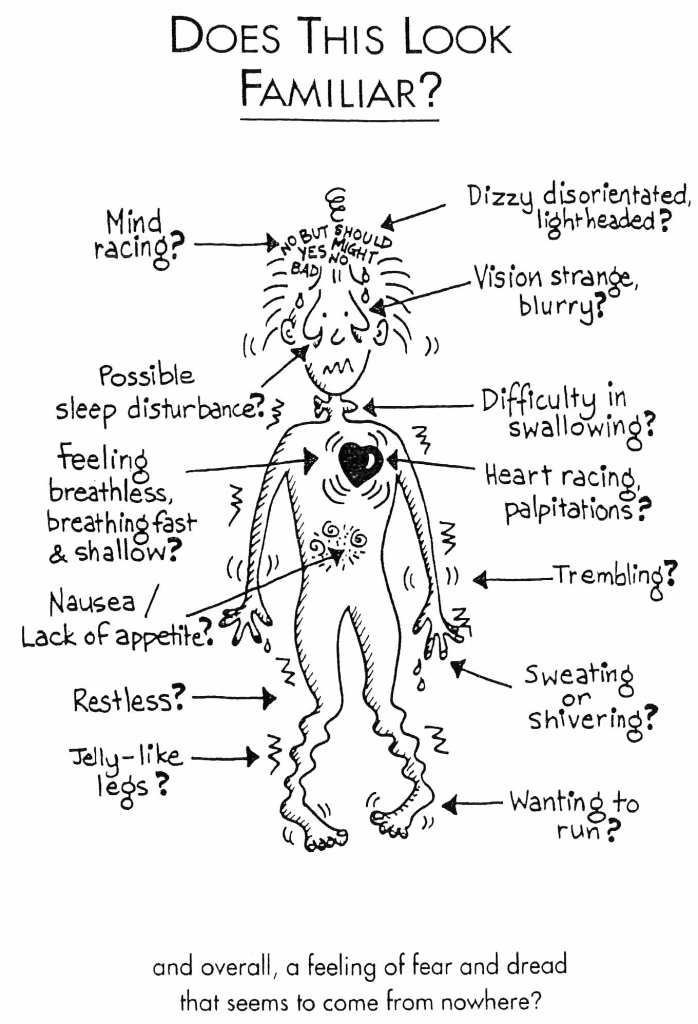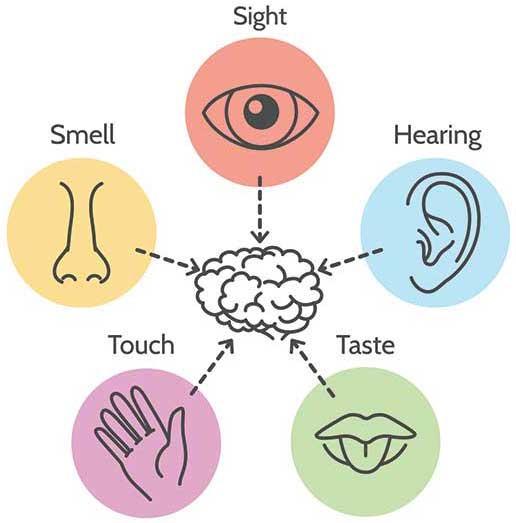Anxiety is a common coping response to sexual violence. Anxiety is your body’s way of trying to keep you safe following trauma. For people who have experienced multiple traumas in their life, anxiety is usually a common experience.
What is anxiety?

Common symptoms of anxiety include:
- Racing thoughts
- Feeling nervous, restless or tense
- Having a sense of impending danger or panic
- Having an increased heart rate
- Breathing rapidly, feeling breathless
- Sweating
- Trembling
- Trouble concentrating or thinking about anything other than the present worry
- Having trouble sleeping
- Experiencing gastrointestinal problems
- Having difficulty controlling worry
- Having the urge to avoid things that trigger anxiety
How to manage anxiety
There are lots of different things you can do to manage the symptoms of anxiety. It is important to identify the effective strategies that work for you. Here are some ideas for you to try.
Five Senses
Identify 5 things you can see
Identify 4 things you can hear
Identify 3 things you can touch
Identify 2 things you can smell
Identify 1 thing you can taste

Temperature
Have a hot or cold shower/ bath
Go for a swim
Put an icepack on your head
Music
Find a calm/ relaxation music playlist
Create your own music
Get Moving
Go for a walk
Do some stretching or yoga
Do some cleaning or gardening
Shadow boxing
Skipping
Sport
Mindfulness & Meditation
Focus on your breath
Listen to some guided meditation
Progressive Muscle Relaxation
Engage in progressive muscle relaxation
Breathing
Notice your breath (without trying to change it)
Nature
Go outside
Take a mindful walk
Remove your shoes and feel your body connect with the earth
Creativity
Mindfulness colouring in
Knitting or crocheting
Diamond dotz art
Drawing or painting
Home decorating or furniture restoration
Creating a vision board (collage or Pinterest)
Gaming
Fidget toys
Card or boardgames
Video or computer games
Seeking Support
Reach out to a supportive friend or family members
Contact a service for telephone or online support
